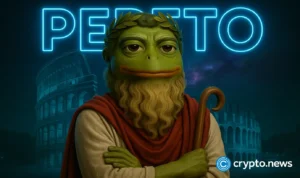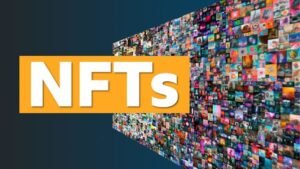Joey Bertschler, a former OpenAI employee, is building a crypto-powered earned wage access system through his new startup, Volante Chain.
In an interview with Cointelegraph at German Blockchain & AI Week, Bertschler said he worked at OpenAI before the launch of ChatGPT, helping business customers use early-stage AI tools. He later decided to switch industries and focus on financial technology, creating a blockchain-based platform that allows same-day wage access for employees.
Volante allows employees at participating companies to be paid their daily wage on the same day, rather than waiting until the end of the month. Bertschler described the current norm as “30 days of taking your freedom away, of choosing what to do with your money,” particularly for those living paycheck to paycheck.
The platform uses blockchain to enable seamless record-keeping in a verified ledger and reduce costs, which allows for low fees, he said.
Volante uses artificial intelligence to help predict employer defaults and assess risk in real time. Bertschler described the system as hybrid: partially AI-driven with human oversight and some legal review. He said AI is used for pattern detection and decision-making support, but is not fully autonomous. “There’s also semi-automation, some lawyers involved, some human oversight,” he said.
Related: Tether USDt tops salary payments and savings in EU in 2024 — Brighty
Bertschler told Cointelegraph that Volante has raised about $2 million so far from private investors. He expects the lean company to be able to run for about five years without requiring further capital injections.
He said Volante is “deploying to a couple thousand test users in Vietnam and Japan,” with plans for expansion in the future. He said this was the minimum viable product stage, and compared it to a closed beta.
From OpenAI to crypto
Bertschler said his decision to leave OpenAI and subsequent fintech pivot resulted from good offers from other companies and internal policies he did not appreciate. As an Austrian national, he claimed non-US employees faced limited advancement opportunities and were excluded from stock option plans.
“We’re a bit stuck. We were paid fair wages, but we didn’t get any stock options, and we couldn’t really rise in our roles,” he said.
He added that the closed nature of the firm prevented workers from showcasing their code on GitHub, which allows for long-term employee growth:
“I wrote a lot of documentation. For example, my name is not on anything. […] You don’t have a portfolio to show for it, right?“
Related: AI race between US and China resembles Cold War — Marc Andreessen
OpenAI is increasingly closed
Bertschler was critical of OpenAI’s current direction, saying the company has become more secretive and profit-driven since Microsoft’s involvement.
Bertschler claimed that OpenAI’s conduct was not appropriate for its name. “You can absolutely call it closed AI,” he said, adding:
“It’s certainly going against a lot of the founding principles.“
May reports indicate that Microsoft — OpenAI’s top financial backer — is currently in talks with the AI behemoth to renegotiate the investment deal.
OpenAI has attempted to restructure to shift its focus to profit-making, but this has been met with pushback from co-founders like Elon Musk and early investors.
In early May, OpenAI announced it was abandoning its shift to a purely for-profit model and is choosing to shift to a public benefit corporation. This structure would include legal obligations to fulfill social or public goods objectives and be controlled by a nonprofit entity.
Magazine: AI cures blindness, ‘good’ propaganda bots, OpenAI doomsday bunker: AI Eye
Read the full article here










